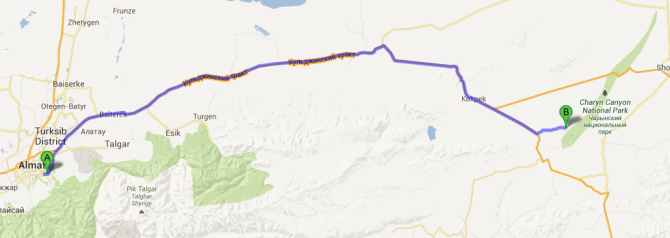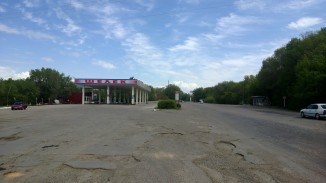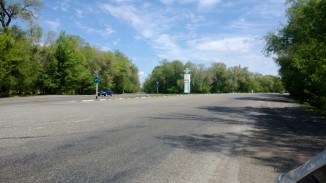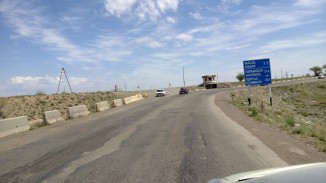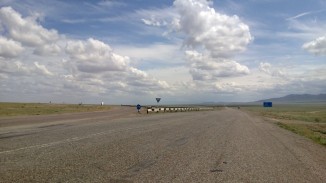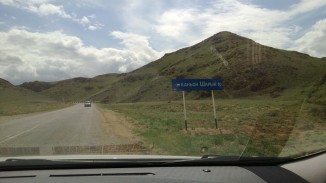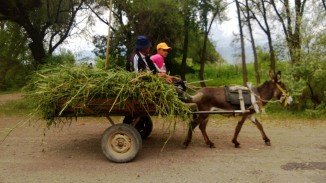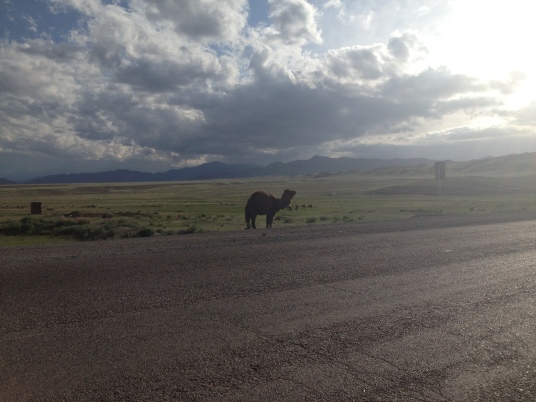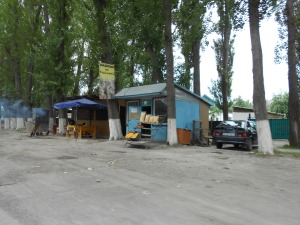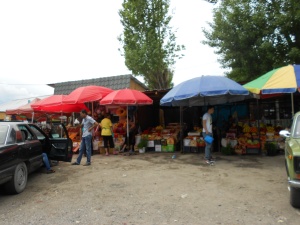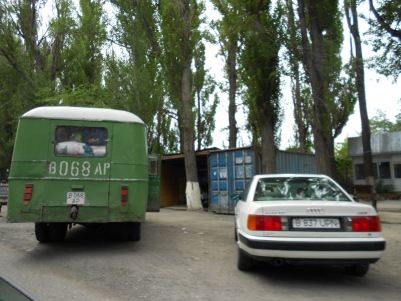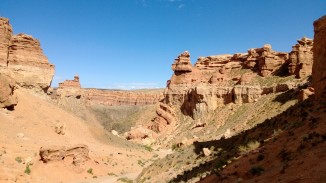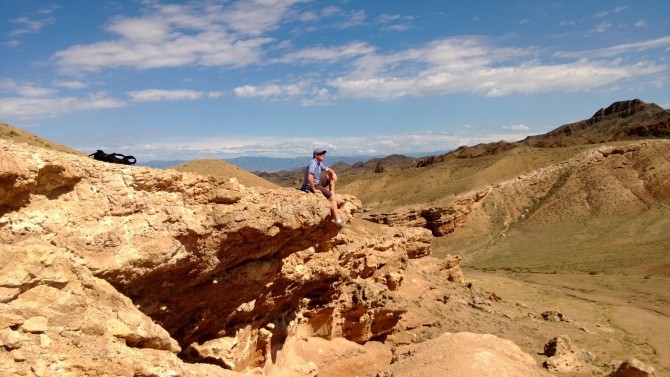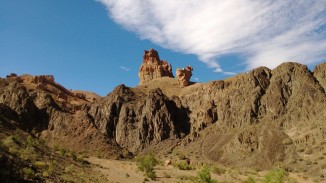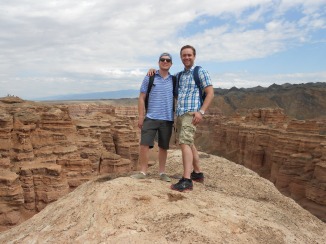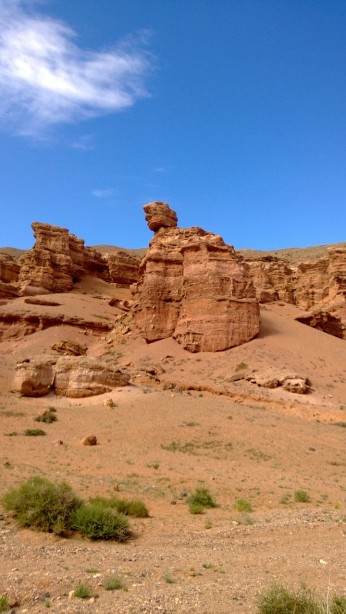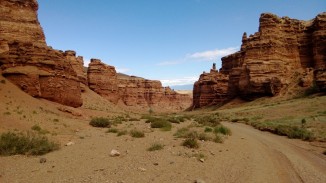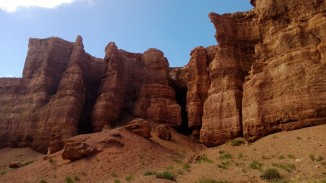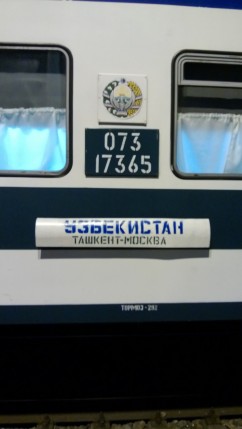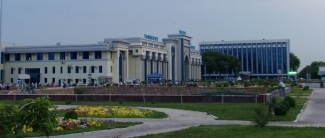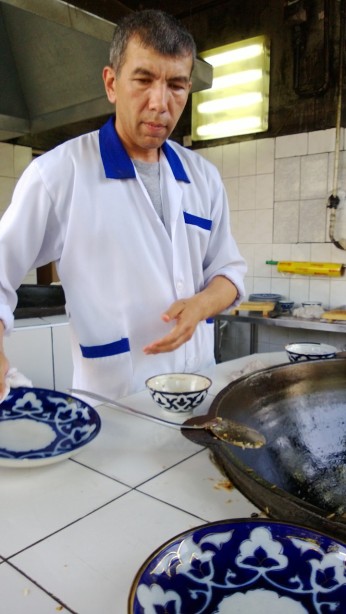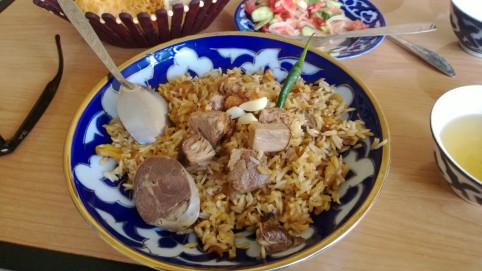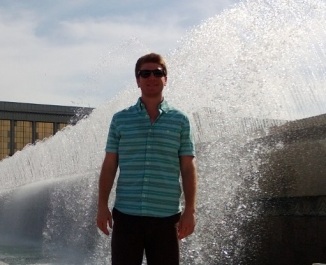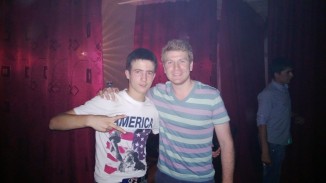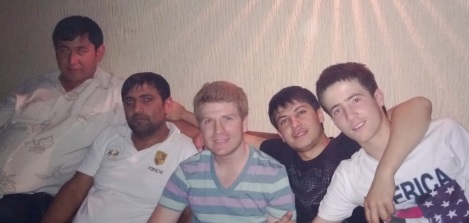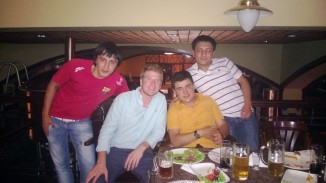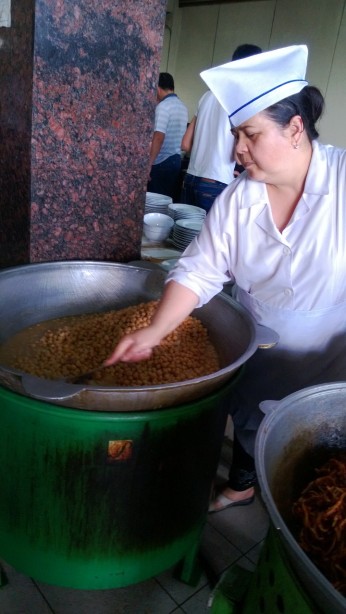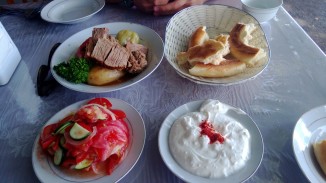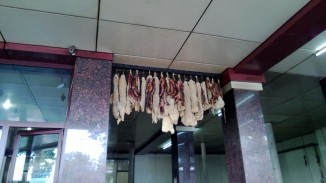Visiting or living in Almaty and looking for a short excursion from the city life? Charyn canyon, the second biggest canyon in the world next to the Grand Canyon, makes for a fantastic day trip being only 200km and a 3 hour drive away. The canyon itself offers stunning views of Kazakhstan’s picturesque landscape and the drive there offers a “real” taste of the Kazak people and their lifestyle, away from the hustle and bustle of the city.
Quick Guide
- Bring enough food and water to last you the whole day, there aren’t many “quality” options on the way there or back.
- Bring toilet paper, I’ll just leave it at that 🙂
- It’s at least 6 hours of driving and a good visit at the canyon will take 3-4 hours, so plan accordingly.
- Leave your wallet and passport in a separate compartment in your car and only a small amount of cash on you (1500-2000 tenge). This way you can claim that’s all you have and they can’t confiscate your most important document.
- Don’t cave right away to the officers. If you know you are in the right, stand up for yourself. If you did commit a violation, keep calm and have your cash ready.
- Bring your camera and have fun!
Getting There
It’s a fairly easy drive as you stay on one highway (A351) for the majority of the trip. Leaving Almaty, take Al-Farabi east through the tunnel and head northeast towards the airport. You will reach a roundabout after 10-15km, take the second exit which will keep you going straight on the A351. There are three points on the A351 where the road splits and you will need to continue going right. The first is around 125km into the trip and right after the following gas station and near the post with a green diamond shape on top.
After another 25km, the second turn is near this blue sign and circular shaped outpost. Stay to the right. After this turn you will be heading towards the mountains.
After another 25km, the third and last right is less identifiable, but has a red and white guard rail seperating the two directions. Stay to the right.
After the third right, you will reach a sign stating you have reached the Kokpek Gorge. From here you will a nice drive through the mountain pass.
You will reach a sign stating Charyn Canyon 10km, shown below. From here, you will take a dirt road 10km until you reach the National Park entrance.
Speed limit and the Police
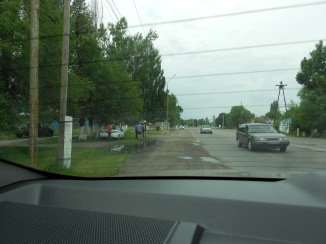
If you haven’t heard already, the police are quite corrupt in Kazakhstan and like taking money from tourists and expats. This is especially true when driving through small towns on the way to the canyon. The speed limit is only 40 km/h, and nearly every small town had police camping at the beginning, some of them having speed cameras and others not. Unfortunately, I had several encounters with the police on the trip, but it added to the adventure and now I can share some insight with all of you.
1st Stop: I was definitely driving too fast, going 60 in a 40 zone. There were 3 officers, one running the camera, one waving people down with a bright orange baton, and the third sitting in the car “writing people tickets” a.k.a., collecting the cash. I was waved down by the officer with the baton so I pulled over the side. He asked for my papers and told me to get out of the car, speaking no English, so we were communicating through gestures and intuition. He took me to the camera and showed that indeed I was going too fast, then directing me to the police car to visit with “the boss”. My friend Paul had stepped out of the car to join in the experience, and “the boss” was not very happy about this, and started yelling for him to go back to the car. I luckily received some intel from a colleague before the trip to keep only small amounts of money in your pocket and no passport, leaving them in the car. This came in handy for sure. I didn’t want to deal with a ticket and I’m sure the officer didn’t either, so I pulled out 2000 Tenge ($13) and showed it to the officer. He directed me to set it in the section between our seats, then gave me my papers back and I was on my way.
2nd “Stop”: I put this one in parentheses, because I didn’t actually stop although I was directed to 🙂 About 20 minutes after the first stop, a red Audi was cruising ahead of me. I realized that we were approaching the entrance of a town so I slowed down. As expected, there were officers waiting and flagged down the Audi. It appeared that he was trying to wave down me as well, but I wasn’t exactly sure. We made a split second decision to keep driving and if someone came after us we could chalk it up to being ignorant tourists. The decisions paid off because we continued on our way with follow up from the officers.
3rd Stop: On the way back from the canyon, after being stopped once and nearly again, I was well prepared to drive slow in each town. However, this didn’t stop the police from trying to get some Tenge off me. About midway through the trip, I entered a town going exactly 40 and began approaching the camped out police. The officer standing outside starting waving me down. I was really confused as I was going the limit, and thought about continuing on, but something told me to stop. He approached the car and motioned for me to get out of the car. I knew he didn’t have anything on me so I started arguing with him that I was only going 40, showing on my hands and pointing to the speedometer. He pointed that I was going 60, which was outrageous so we kept arguing. I wasn’t sure how this was going to turn out, but luckily they had pulled over a local Kazak woman while this was happening. He couldn’t deal with us and her at the same time so he threw up his hands and waved us off. Persistence paid off.
On the road
Some things you may encounter along the way.
Lots of donkey carts.
Roadside animals.
Roadside markets with plently of shaslyk…buyer beware.
Lots of 20 year old Audi’s.
At the canyon
I’ll let the pictures do the talking.


